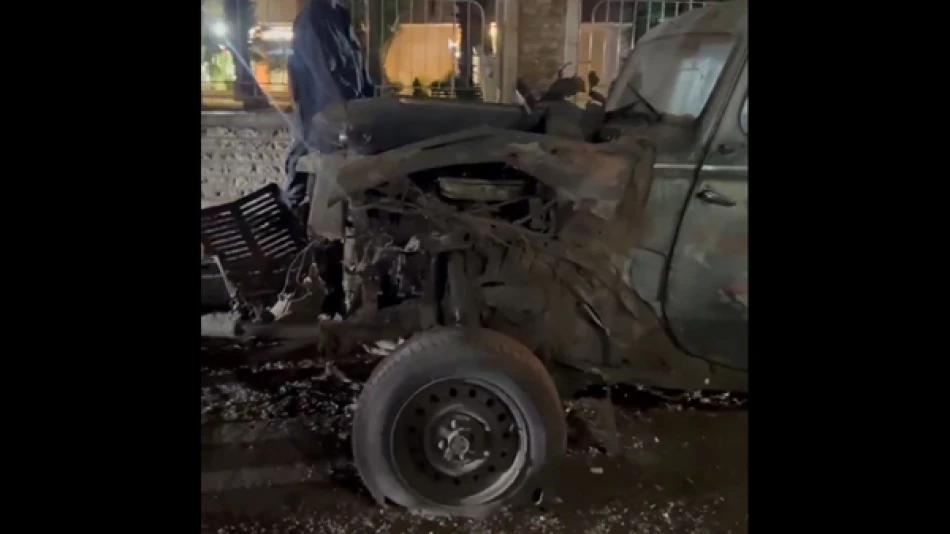
Deadly Car Explosion Rocks Syrian Capital, Damascus
Car Bomb Explodes in Damascus Diplomatic Quarter, Raising Questions About Syria's Security Transition
An improvised explosive device detonated inside a parked car in Damascus's upscale Mezzeh district on Saturday, marking another security incident in the Syrian capital's diplomatic quarter as the country navigates its post-Assad transition. While Syrian state media reported no casualties or property damage, the blast's location near embassies and UN offices underscores ongoing security challenges facing Syria's new interim government.
The Incident Details
The explosion occurred in Mezzeh, one of Damascus's most prestigious neighborhoods that houses multiple foreign diplomatic missions and United Nations offices. According to the official Syrian Arab News Agency (SANA), Damascus Province's internal security commander confirmed the blast originated from an explosive device planted inside an old vehicle that had been parked in the area for an extended period.
Security teams immediately cordoned off the explosion site while specialized units conducted sweeping operations throughout the surrounding area to ensure resident safety and prevent potential follow-up attacks, officials stated.
Strategic Significance of the Target Area
Mezzeh's selection as a target location carries particular weight given its status as Damascus's de facto diplomatic hub. The district has historically served as a barometer for Syria's security climate, with previous incidents often reflecting broader political tensions or power struggles within the country.
The area's concentration of international presence makes any security breach there especially sensitive for Syria's new leadership, which has been working to project stability and control since taking power in December 2024.
Security Implications for Syria's New Government
This incident presents an early test for the interim government's security apparatus, which inherited a complex landscape of competing militias, sleeper cells, and unresolved grievances from the Assad era. The fact that an explosive device could be planted and remain undetected in such a high-security zone raises questions about intelligence capabilities and surveillance effectiveness.
For Syria's new leadership, maintaining security in diplomatic areas is crucial for gaining international recognition and potentially lifting sanctions. Any perception of inability to protect foreign missions could complicate efforts to normalize relations with Western nations and regional powers.
Broader Regional Context
Similar car bombings have plagued other Middle Eastern countries during transitional periods, from Iraq post-2003 to Libya after 2011. These incidents typically represent either remnants of the old regime attempting to destabilize new authorities, or competing factions testing the government's response capabilities.
The timing is particularly significant as Syria's interim government has been conducting negotiations with various armed groups to integrate them into official security forces or facilitate their disarmament—a process that inevitably creates tensions and potential spoiler activities.
What This Means Moving Forward
While the absence of casualties suggests either poor execution or a deliberate warning rather than maximum damage intent, the incident serves as a reminder that Syria's security transition remains fragile. International diplomatic missions will likely reassess their security protocols, potentially affecting the pace of diplomatic re-engagement with Damascus.
The new government's handling of the investigation and any subsequent security measures will be closely watched by both domestic audiences seeking stability and international partners evaluating Syria's readiness for normalized relations.
Most Viewed News

 Layla Al Mansoori
Layla Al Mansoori






